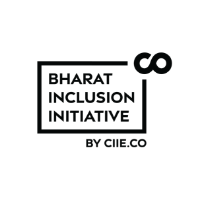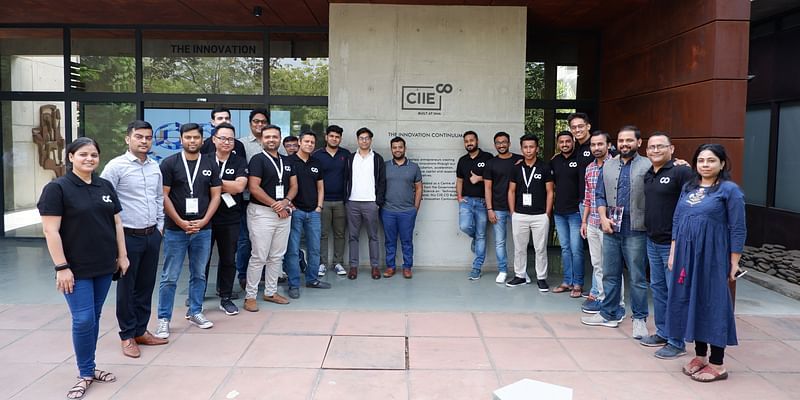
Bharat Inclusion Initiative
View Brand PublisherFinancial Inclusion Lab announces the fifth cohort of startups building innovations for the underserved
Over the last three years, the Lab has supported 33 startups in four cohorts that have cumulatively served more than 20 million customers, and raised over $50 million in funding since their participation.
The Financial Inclusion Lab is an accelerator programme at CIIE.CO’s Bharat Inclusion Initiative, supported by Bill & Melinda Gates Foundation, J. P. Morgan, Michael & Susan Dell Foundation, MetLife Foundation, Omidyar Network, and run in collaboration with MSC Consulting. The lab identifies and supports startups that enhance the financial health of lower-income communities with mentoring, market research, access to networks, capital, and other support to build and scale their solutions.
Over the last three years, the lab has supported 33 startups across four cohorts that have cumulatively served over 20 million customers, and raised over $50 million in funding since their participation in the lab. For its fifth cohort, the Lab has selected nine startups building inclusive solutions for the low- and middle-income segments. These startups are working on credit, savings, insurance, health, market-access, and related technology-driven financial solutions that benefit underserved segments such as farmers, artisans, gig workers, micro-entrepreneurs, and feature-phone users.
Startup Details
: A technology platform aggregating multiple lenders (fintechs and NBFCs) that can service users across all categories, and an assisted operations model to help users complete the loan application process. The platform helps users to avail loans from $6.50 to $13,000, with features that enable low and middle-income segments across India to access formal credit, especially, in smaller cities. The platform has over 500,000 registered users, majority of them from non-top 6 cities.
CreditHaat operates in a B2B manner in allowing partners to integrate its “service” (technology, operations and lender relationships), to offer credit to their users/employees. One such implementation is towards offering CreditHaat as a platform for agents (sahayaks) to generate income by helping people within their social networks to avail loans.
Team: Tanuj Sinha, Awdhesh Tiwary
: A digital health platform which provides services like instant medical loans, digital health cards for instant discounts on medicines and medical bills, e-lab test reports, insurance claim assistance, and other health related services.
The Manipur-based startup is currently catering to an underserved region of Northeastern India, which has one of the lowest health insurance penetration in the country. Most of the players in the e-pharmacy and medical loans space have negligible presence in this region.
Team: Lian Thangvung, Binod Mutum
: FLYK has developed the concept of Combined Responsibility Network which is utilised along with alternative data for providing short-term individual loans to its members. Such a mechanism links the credit services of a member to the credibility and repayment behaviour of his/her overall network. Moreover, FLYK’s mobile app ensures a completely digital loan journey, and has completed more than 1,200 credit cycles in the past one year.
By combining alternatives with social capital data, FLYK is able to offer higher ticket size loans at lower interest rates. Its community-led approach to credit underwriting inherently increases the number of customer touchpoints that improves product literacy, increases FLYK’s reach, and significantly lowers acquisition costs and defaults.
Team: Apratim Ganguli, Prafful Jagtap, Akshay Patil
: A voice-based UPI payments interface using a feature phone without the presence of hardware terminals like POS or QR code, internet or proximity to merchant/receiver. Currently, half a billion Indians use feature phones. They can only speak or listen so it becomes difficult for them to read the instructions while making payments.
Using MissCallPay’s application, a user can transact in 12 local languages without proximity by giving a missed call on a merchant-specific virtual phone number and then getting a call back to enter the amount and the UPI pin. Previously, the startup was a winner of the NPCI Grand Challenge for feature phone payments.
Team: Mitesh Thakker, Harshil Shah
: The middle income segment with annual income of Rs 2-5 lakh lacks access to and information on the right financial products that can grow their wealth and suffers from expensive unsecured lending practices.
Mool is a multilingual application that provides solutions for savings and investments, credit, and insurance to the low and middle income segment. Mool distributes incoming funds into different baskets such as savings accounts, liquid funds, insurance and long-term investments depending on every user's needs and requirements. They have cash-in-cash-out points through kirana stores and in-app financial education content to increase awareness about financial health and wellness. Currently, Mool has 350 vetted users and has tied up with various banks to provide these financial services.
Team: Abhinav Nayar, Karan Bharadwaj
Microfinance.ai: Microfinance.ai is developing a digital platform for local-language preferred users to avail digital financial services through mobile and help micro-lenders. They aim to digitise the entire operations of MFIs who are currently working on smaller profit margins, do not have the resources to invest in technology, and are mostly driven by huge manpower.
The startup plans to have a local language and voice assistive UI-based loan application for the micro borrowers and a web platform for micro-lenders that lets them manage borrowers profile, append alternate data for underwriting, integrates credit score and also provides analytics on loan defaults through their AI.
Team: Kapil Patil, Swati Sinha
Arboreum: Arboreum is enabling affordable formal credit access for underserved credit markets by using the structure and data of supply chain networks.
Currently catering to the small and marginal farmers, Arboreum offers a scalable anchor-led financing model through its credit-union-as-a-service model leveraging concepts of joint liability and microfinance.
Team: Gaurav Singhal, Vishal Hemrajani
GreyMatter: Greymatter provides affordable financing and access to quality agriculture inputs to smallholder farmers, through the panchayat level community commerce and financing model.
Greymatter works with agri-input suppliers and networks of smallholder farmers. It acts through village councils (panchayat) on an innovative commerce and financing model to provide smallholder farmers access to affordable credit and quality agriculture inputs. This enables the beneficiaries to receive quality agri-input products and services which otherwise are not available to them due to fragmented demand in rural areas.
Team : Neetesh Singh Thakur
: A social engagement-based digital platform where content, social interaction, and personalisation converge to deliver products based on individual tastes and preferences, with the goal of enabling increase in incomes and improved socio-economic conditions of artisans.
The startup empowers artisans with market linkage and insights that enable them to understand customer preferences and demand better. For customers, it provides unique features such as customisation, virtual try-outs, and assisted purchases that add trust and improve the overall experience at significantly lower prices.
Team: Raghuram Kuchibhatla, Meenakshi Dubey
About BII & the Financial Inclusion Lab
Launched in 2018 by IIM Ahmedabad's CIIE.CO, the Bharat Inclusion Initiative (BII) helps tech entrepreneurs across the pre-incubation, seed and scale-up stage to develop inclusive solutions. The initiative includes research fellowships, sprints, incubation, accelerators, seed fund and other support programmes to create an end-to-end enabling ecosystem that brings inclusive and for-profit businesses to life.
The Financial Inclusion Lab, a key component of the Bharat Inclusion Initiative, offers customised and differentiated support to each startup, which includes prototype capital, mentoring by distinguished practitioners and sector experts, partnering opportunities with financial and other organisations, curated training by faculty members and experts from IIM Ahmedabad, access to scale-up capital via the Bharat Inclusion Seed Fund, cloud credits, legal, marketing, and other ancillary services. MSC Consulting, an international financial inclusion consultancy firm, provides startups with high-touch consulting and insights into the low and middle-income segments.










![[Startup Bharat] Y Combinator-backed BeWell Digital is enabling the digital transformation of radiologists](https://images.yourstory.com/cs/2/40d66ae0f37111eb854989d40ab39087/ImagesFrames31-1648033042143.png)
